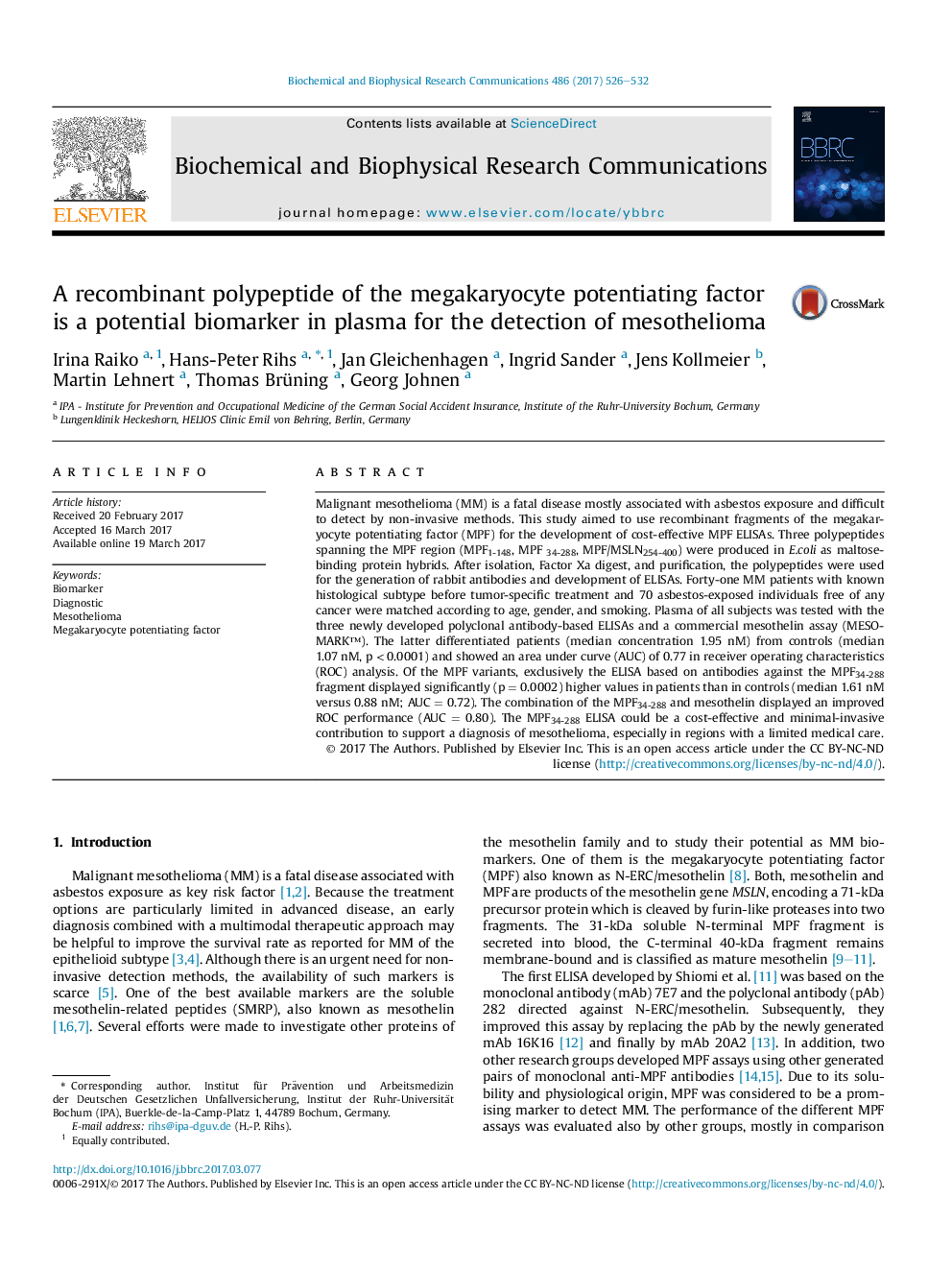| Article ID | Journal | Published Year | Pages | File Type |
|---|---|---|---|---|
| 5506010 | Biochemical and Biophysical Research Communications | 2017 | 7 Pages |
Abstract
Malignant mesothelioma (MM) is a fatal disease mostly associated with asbestos exposure and difficult to detect by non-invasive methods. This study aimed to use recombinant fragments of the megakaryocyte potentiating factor (MPF) for the development of cost-effective MPF ELISAs. Three polypeptides spanning the MPF region (MPF1-148, MPF 34-288, MPF/MSLN254-400) were produced in E.coli as maltose-binding protein hybrids. After isolation, Factor Xa digest, and purification, the polypeptides were used for the generation of rabbit antibodies and development of ELISAs. Forty-one MM patients with known histological subtype before tumor-specific treatment and 70 asbestos-exposed individuals free of any cancer were matched according to age, gender, and smoking. Plasma of all subjects was tested with the three newly developed polyclonal antibody-based ELISAs and a commercial mesothelin assay (MESOMARKâ¢). The latter differentiated patients (median concentration 1.95 nM) from controls (median 1.07 nM, p < 0.0001) and showed an area under curve (AUC) of 0.77 in receiver operating characteristics (ROC) analysis. Of the MPF variants, exclusively the ELISA based on antibodies against the MPF34-288 fragment displayed significantly (p = 0.0002) higher values in patients than in controls (median 1.61 nM versus 0.88 nM; AUC = 0.72). The combination of the MPF34-288 and mesothelin displayed an improved ROC performance (AUC = 0.80). The MPF34-288 ELISA could be a cost-effective and minimal-invasive contribution to support a diagnosis of mesothelioma, especially in regions with a limited medical care.
Related Topics
Life Sciences
Biochemistry, Genetics and Molecular Biology
Biochemistry
Authors
Irina Raiko, Hans-Peter Rihs, Jan Gleichenhagen, Ingrid Sander, Jens Kollmeier, Martin Lehnert, Thomas Brüning, Georg Johnen,
